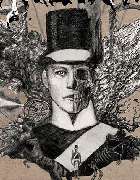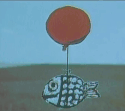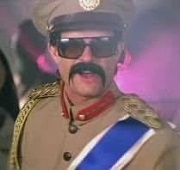|
Today it's been 79 years from the armistice that ended the Winter War. I had a bunch of relatives who took part, including my grandfathers brother who was killed about a month before the armistice fighting somewhere around (https://fi.wikipedia.org/wiki/Kitil%C3%A4n_suurmotti). In his last letter he sent home a few days before he died he mentioned having been made the acting commander of an infantry company, while he was only a 2nd lieutenant.
|
|
|
|

|
| # ? Jun 13, 2024 18:07 |
|
Gnoman posted:It seems kind of odd that they name-check an American naval officer so much, no matter how respected that officer is. mllaneza posted:Along with everything else said, which is spot on, JPJ provides a towering example of preparation, inspiration, and pure bloody mindedness that few captains ever met. Captain Pearson aboard the Serapis was no slouch, he had a crew that would stand up to as much as JPG's, and he was the only captain to bring him to battle after many fruitless cruises. I did strike me as a rather unusual choice. There were a couple of Nelson quotes in there (both about how most of the real problems of command are caused by officers bad-mouthing the flag/staff ranks and back-stabbing each other, rather than anything stemming from the lower deck) and one from Collingwood (about the temptation/problems of getting drunk every time you sit down in the wardroom) but only JPJ is used as a source for command ethos/style. To partially repeat what others have said, I think this is mostly because JPJ is a drat good example to use for any naval leader. I strongly suspect there's also a matter of editorialising - JPJ said what the Second Sea Lord wanted to say in the booklet. I doubt you would find many of the great RN commanders of the 18th and 19th centuries putting the required sense of mutual respect and noblesse oblige so succinctly into writing, if at all. For instance, while Nelson was an excellent tactician, a fine leader of officers and capable of inspiring great 'upward loyalty', his personal opinion of the abilities and morals of the lower deck probably weren't want Vice-Admiral Willis wanted to get across in 1944. I think it's also highly relevant that JPJ was almost exclusively a small-ship captain (as the text mentions), commanding only brigs, sloops and frigates and the booklet was aimed at the commanders of those ships' modern equivalents. More importantly still, JPJ was an 'amateur' - a merchant sailor who joined the Continental Navy and went to war. The vast majority of those reading 'Your Ship' were also 'amateurs', who probably had never even set foot on a ship of any sort, let alone had thoughts of serving in the navy, two or three years before they assumed command. There is no better role model, especially as pre-1939 there was no such thing as an 'amateur' RN officer - they had all gone through the prep-school/Osbourne/Dartmouth/Greenwich/fleet service mill and were almost entirely of the upper-middle/upper social class. Which JPJ was not. I wouldn't be surprised if, given the close and growing-ever-closer relationship between the RN and the USA (and the UK and the USA in general) at the time, it was seen as politik to include some apt quotes from a British-born sailor who was a successful officer in the American navy. Finally, as feedmegin points out, Willis may have just been a JPJ fan before he set pen to paper and used the opportunity to throw in some quotes he was already familiar with.
|
|
|
|
Epicurius posted:In Isaac Asimov's book, Foundation, which takes place in the distant future in space, ....but, as was the custom at the time, modelled on the Fall of the Roman Empire. Including, naturally enough, an expy of our old friend Belisarius.
|
|
|
|
Deptfordx posted:....but, as was the custom at the time, modelled on the Fall of the Roman Empire. Including, naturally enough, an expy of our old friend Belisarius. Not surprising given that Asimov wrote a history of the Byzantine Empire (and presumably relied heavily on second hand sources for it.)
|
|
|
|
sullat posted:Not surprising given that Asimov wrote a history of the Byzantine Empire (and presumably relied heavily on second hand sources for it.) The thing to remember about Isaac Asimov is that the man wrote every single book in existence about everything. Asimov wrote about 350 books and edited about 150 others, on genres as diverse as science fiction, fantasy, history, biography, literature, chemistry, biblical criticism, and mystery. He was prolific as anything.
|
|
|
|
I'm wondering now if Foundation was actually the Trope Zero for "What if the Roman Empire Falls? But in SPPPAAACCCEEEE!" or anything else predated it. And now I'm also wondering what was the earliest take on The Anabasis, another perennial favourite of MilSF authors. Epicurius posted:The thing to remember about Isaac Asimov is that the man wrote every single book in existence about everything. Asimov wrote about 350 books and edited about 150 others, on genres as diverse as science fiction, fantasy, history, biography, literature, chemistry, biblical criticism, and mystery. He was prolific as anything. Asimov was allegedly once asked what he would do if told he had only 15 minutes to live and his reply was "Type faster." Deptfordx fucked around with this message at 18:13 on Mar 13, 2019 |
|
|
|
Foundation was openly pitched as "The Decline and Fall of the Roman Empire but in space."Wikipedia posted:According to Asimov, the premise was based on ideas set forth in Edward Gibbon's History of the Decline and Fall of the Roman Empire, and was invented spontaneously on his way to meet with editor John W. Campbell, with whom he developed the concepts of the collapse of the Galactic Empire, the civilization-preserving Foundations, and psychohistory FMguru fucked around with this message at 21:51 on Mar 13, 2019 |
|
|
|
BalloonFish posted:JPJ was almost exclusively a small-ship captain (as the text mentions), commanding only brigs, sloops and frigates and the booklet was aimed at the commanders of those ships' modern equivalents.
|
|
|
|
Ataxerxes posted:Today it's been 79 years from the armistice that ended the Winter War. I had a bunch of relatives who took part, including my grandfathers brother who was killed about a month before the armistice fighting somewhere around (https://fi.wikipedia.org/wiki/Kitil%C3%A4n_suurmotti). In his last letter he sent home a few days before he died he mentioned having been made the acting commander of an infantry company, while he was only a 2nd lieutenant. *sigh* stolen valor is stolen valor *points phone at your grand uncle's grave* "YOU DIDN'T EARN THOSE STRIPES"
|
|
|
|
Alan Smithee posted:*sigh* stolen valor is stolen valor The tail end of the Winter War was a real meatgrinder for junior officers. At Kollaa (https://en.wikipedia.org/wiki/Battle_of_Kollaa) there was at least one infantry company led by a junior sergeant, since there were no officers not dead or wounded left.
|
|
|
|
After WW1 the German Reich was so blood shed that it was led by a corporal!
|
|
|
|
What is the current historical consensus on degaulle? Everything I’ve heard hasn’t been complimentary
|
|
|
|
bowler-hat warchief: something something cross of lorraine
|
|
|
|
Mycroft Holmes posted:What is the current historical consensus on degaulle? Everything I’ve heard hasn’t been complimentary i'm interested to hear this too here's some wikipedia based horseshit that will say far more about me than about degaulle: he came up in the generation of generals who, hot take incoming, consciously sacrificed their nation to nazi rule as a preferable alternative to socialism, but he actually avoided committing treason and politicked his way to the top of the resistance, so he was in a good electoral position from there on out and then he out-politicked everyone until he died (or maybe until he lost a referendum and resigned i guess?). he played the right by stringing things along in algeria but in the end he hosed the colons (lol). i cant tell what the gently caress happened in 1968 but it seems to have been good for conservatism so i'm guessing he played the left there??? by fleeing the country???? edit: that was fun to write but please don't take my arguments too seriously, i'm sorry in advance if it's offensively ignorant also, to clarify one thing, the 'sacrificing the nation instead of accepting socialism' thing is me blaming the army for everything the chieftain guy blames on the socialists in this super-interesting video that was linked itt by a good poster, the kind who will post an answer worth reading: https://www.youtube.com/watch?v=ZqoPZK6gyao oystertoadfish fucked around with this message at 02:18 on Mar 14, 2019 |
|
|
|
We were talking about DeGaulle in the thread not too long ago. The stand-out quote for me was that he was one of the most French Frenchmen that ever lived. For better and for worse.
|
|
|
|
Mycroft Holmes posted:What is the current historical consensus on degaulle? Everything I’ve heard hasn’t been complimentary I have no idea if this is a consensus, as this is so far out of my field it's not even funny, but I read a recent biography of de Gaulle by Julian Jackson last year for fun. He was definitely conservative, but not anti-Semitic as many of his contemporaries were. Jackson writes a lot about de Gaulle's "idea of France", which is of course the line taken from his War Memoirs, and says that many of his policy positions, even those which seem more inscrutable from a different point of view, were taken with that "idea of France" in mind, as a globally active power that deserved a degree of respect. After the fall of France in 1940, de Gaulle wasn't really a major figure, and he gained his reputation partly because the Vichy regime worked itself into a hysterical frenzy about him and because he was completely stiff and inflexible in negotiations with the British and Americans. Even FDR wanted to sideline him at some point, but Eisenhower didn't do that, knowing that de Gaulle was simply too popular on the French mainland. de Gaulle resigned from office in 1946 and he did not hold power again until the 'crisis' of 1958 which led to the dissolution of the Fourth Republic, and the creation of the fifth republic, with the stronger presidential system that France still has today, and with de Gaulle staying in power from 1958 until 1969. The Algerian war was a horrible bloody slog, with the French army committing atrocities and the Algerian separatists committing terror attacks in the cities in retaliation. A rogue faction within the military had attempted to coup de Gaulle in 1961 and failed miserably, and in response to de Gaulle's long-delayed announcement of a withdrawal and independence referendum for Algeria, a right-wing terrorist militia formed, the Organisation armée secrète, which set off bombs in major cities and conducted several assassination attempts, including one against de Gaulle himself and another against Jean-Paul Sartre. He had apparently responded to the massive protests in 1968 after flying to Germany by calling for elections which his party won handily, and only resigned after the failure of a referendum to reorganize the government further in 1969. He'd been in power too long and was perceived as too authoritarian, dogmatic, etc., etc. In power, de Gaulle relied on the idea that France was a major power in its own right and should not rely on the United States, which led to the withdrawal from the NATO military command structure and the development of an independent nuclear arsenal. It also led to some nice things like treaties with Germany, and the enhancement of state bureaucracy, and some pretty messy things like interventions in West Africa and tolerating dictators who were still in the Francophonie. And the strong presidential system - where the executive has more power in domestic affairs than the POTUS - has left a legacy that very few of his successors were able to really grapple with. Somebody as politically tenacious as François Mitterrand might be able to hold onto power for almost 15 years, but that's really the exception among a French public that's deeply divided and often cynical or easily disillusioned.
|
|
|
|
Jobbo_Fett posted:Hey remember when I used to do these because nobody ever talks about Italian planes? Italian Aircraft of World War 2 Part 5 CANT Part 2 Z.511  The CANT line-up of planes so far has been underwhelming. Continuing with that Italian tradition, we have the CANT Z.511, a plane initially envisioned as a trans-atlantic passenger/cargo plane, it featured a two-level airframe with crew and passengers above and mail/cargo below. Sleeping arrangements were also to be provided for up to 16 people. Unfortunately for CANT and Ing. Zappata, the prototype's construction, that initially began in 1939, wasn't completed until 1943 when it first flew. It did, however, have a good tolerance for rough weather, suffering few adverse effects even when moored in waters producing 7 foot waves. According to my book, the CANT Z.511 was assigned a rather ambitious operation, namely to transport manned torpedos, alongside its sister aircraft, to the harbors of the USA, the target being the harbor at New York, specifically.  Before such a farcical operation could be put into motion, both Z.511's were damaged by allied air attacks. Wikipedia states that the Germans would eventually take over the airframes and scrap them. Had they gone into production, it was planned for them to carry 10 defensive BREDA-SAFAR machine guns, or, allegedly, 10 20mm cannons. 4 torpedos, manned or otherwise, or a total bombload of up to 8800 lbs was possible. CANT Z.511 Wingspan: 131ft 2 and 1/2 in Wing area: 2098 sq ft Length: 93ft 6in Height: 36ft 1in Maximum speed: 264 mph Cruising speed: 205 mph Empty weight: 45,012 lbs Loaded weight: 73,830 lbs Range: 2796 miles Climb to 13120ft: 16 minutes CANT Z.515  CANT numbers don't follow sequentially, as shown by this aircraft's prototype being completed in 1938 (However this date is highly contested, according to Wikipedia. My book, used as a source on that page, says 1938  ). Anyways, there's not much to write about this plane, sadly. It was another cantilever low-wing monoplane that Zappata was famous for designing, and was designed to fulfill the reconnaissance bomber role. It failed to make any impression on the Regia Aeronautica, and was quietly shelved. It carried 3 7.7 machine guns and a single 12.7mm gun in the dorsal turret; bombload was a reported 1320 lbs. ). Anyways, there's not much to write about this plane, sadly. It was another cantilever low-wing monoplane that Zappata was famous for designing, and was designed to fulfill the reconnaissance bomber role. It failed to make any impression on the Regia Aeronautica, and was quietly shelved. It carried 3 7.7 machine guns and a single 12.7mm gun in the dorsal turret; bombload was a reported 1320 lbs.CANT Z.515 Wingspan: 73ft 9 and 7/8 in Wing area: 679.2 sq ft Length: 52ft 7 and 1/2 in Height: 19ft 2 and 3/4 in Maximum speed: 238 mph Cruising speed: 190 mph Loaded weight: 18700 lbs Range: 1180 miles CANT Z.1007  Possibly the most recognized CANT plane, the Z.1007 was one of the most numerous planes within the RA's arsenal of bombers. Its distinctive nose, seen on other planes like the Ju-52 or the SM.79, was designed to take advantage of the relatively low power of the engines available to the Italian industry at the time. The 1935 design's first flight came two years later and immediately displayed some great qualities, such as its 267 mph top speed, and endurance of 1740 miles. Amusingly, it started out with inline engines, but would be fitted with cowlings that gave the appearance of radial engines by the B-version prototype, before eventually being replaced by radial engines. It received the nickname "ALCIONE" or Kingfisher. Representative of Italy's industrial capability, by June 1940, when Italy joined the war for the Axis, it counted only 87 total CANT Z.1007 and Z.1007bis [Those with radial engines], of which only 38 were operational. The photo below shows the two different variants of the bis version, that being the single- or dual-fin setup. According to my book, "individual crew preference and employment of rear-firing armament were the main factors involved".  CANT Z.1007bis Wingspan: 81ft 4 and 1/3 in Wing area: 936 sq ft Length: 61ft 1/4in Height: 17ft 1 and 1/4 in Maximum speed: 267 mph Cruising speed: 235 mph Empty weight: 19000 lbs Loaded weight: 28211 lbs Range: 1242 miles CANT Z.1011  In three years when I get to the FIAT planes, you'll be saying "Wow, this sure looks like a Fiat BR.20!". Anyways, this is the plane that lost to the Z.1007, as it was being trialed at the same time for a bomber aircraft contract. It did not win, mainly due to the fact that its designed necessitated two engines rather than the Z.1007's three, and the engines it was to use did not meet their expected performance. Less than 10 were built as a result, and most took on roles that placed them far outside of combat. As designed, however, it carried five machine guns, one being in the nose and the other four in twin-gun setups in ventral and dorsal turrets. CANT Z.1011 Wingspan: 92ft Wing area: 860.8 sq ft Length: 55ft 9in Height: 17ft 2 and 5/8 in Maximum speed: 230 mph Cruising speed: 193 mph Empty weight: 12540 lbs Range: 1242 miles Climb to 16400ft: 19 minutes CANT Z.1018  The last design by Ing. Zappata for CANT before heading off to Breda, the Z.1018 was yet another twin-engined bomber, and, according to my source, lauded as one of the best bombers produced by Italy during the war. Only 16 were ever built. Again, visiting wikipedia suggests that the plane had quite the problematic development and design. As built in 1943, it could be found using 1350hp Alfa Romeo Tornado engines or the 1320hp Piaggio P.XII engines. It have four defensive guns in the usual configuration, that being 2x7.7mm at the sides and 12.7mm guns in the dorsal and ventral position. One offensive gun, of the 12.7mm calibre, could be found near the starboard wing root. It also carried six 550lb bombs. The Leone (Lion), as it would come to be called, saw little to no action, thanks in part to the surrender of Italy.  CANT Z.1018 Wingspan: 73ft 9 and 3/4 in Wing area: 679.2 sq ft Length: 57ft 9in Height: 19ft 11 and 1/2 in Maximum speed: 323 mph Range: 700 to 1367 miles Climb to 6560ft: 3 minutes 10 seconds A projected "Heavy Fighter" variant was designed, with a planned arsenal of seven(!) 20mm MG 151 cannons in the nose, three 12.7mm guns to be used in defensive positions. A night-fighter version was also planned, and was to use the Lichtenstein SN 2 radar mounted in the nose. The projected top speed would have been 385 mph. Next Time: Caproni Part 1
|
|
|
|
That got me wondering, how much of French self-government survived during the occupation? And what happened to the remnants of the French government after the war? Were they prosecuted for losing?
|
|
|
|
SlothfulCobra posted:That got me wondering, how much of French self-government survived during the occupation? And what happened to the remnants of the French government after the war? Were they prosecuted for losing? Which French government? The French government before the fall of France and what happened to them during the occupation, or the Vichy government after the liberation of France? A lot of the French leadership that didn't collaborate, or didn't collaborate enough for the Germans were kept in a concentration camp in Itter Castle in the Tyrol, where they stayed until American troops liberated them in 1945, This included people like Reynaud, Daladier, Generals Weygand and Gamelin and so on. (The liberation of the camp became kind of famous as a historical footnote, because after the SS abandoned the camp, the prisoners pretty much liberated themselves, and a rebelling Wehrmacht unit showed up and helped them defend the site from the Waffen SS until the Americans got there. It was probably the only time during WWII where the Wehrmacht and US Army fought together against the SS.) What happened to them after liberation was, for the most part, nothing. A lot of them got involved in 4th Republic politics. La Roque ran into some trouble after liberation because of his earlier pro-collaborationist sentiments and the Croix de Feu, but generally, those who survived the occupation were fine afterwards. If you wanted to, I could probably break down the fates of the Vichy 80 for you, but pretty much, the less prominent generally retired into private life, and the more famous were made examples of. Epicurius fucked around with this message at 04:22 on Mar 14, 2019 |
|
|
|
I think an important thing to remember about DeGaulle, is that he was a lousy team player. He was very much France first, you see this in ww2 with his chicanery in France, the liberation of Paris and general just being a pain. You see it again in post war, notably when he blocked British entry to the EEC for instance in a long running French effort to maintain influence in Europe, or when he pulled France out of NATO in a large part to avoid playing second fiddle to the US. The wiseness of those actions aside, though I would argue they always at least followed his general thread of no compromise, France first in all things. This made him very unpopular in the Anglosphere, especially in Britain, which in my view has coloured a lot of judgements of him as That Bloody Difficult Frenchman, and this will colour the views of all of us in the English speaking sphere. Of course the argument over what he did being good for France is another one entirely, but it is seldom the argument that i see being had about DeGaulle.
|
|
|
|
SlothfulCobra posted:That got me wondering, how much of French self-government survived during the occupation? And what happened to the remnants of the French government after the war? Were they prosecuted for losing? Again, not an expert in this, blah blah blah. As for the government of the third republic, a majority of the legislature actually voted for Pétain's proposal to reform the constitution, leading to the downfall of the Third Republic. I think the margin was something absurd like 500-80, with over a hundred abstentions as those guys had already fled for their lives. As liberation happens, the Provisional Government (de Gaulle's) sees a wave of summary executions and some extrajudicial punishments of collaborators. After 1944, there was an Épuration Légale, or "legal purge", investigating thousands of cases of government collaboration. This wasn't like Nuremberg, it was all French courts and French judges, and a lot of those judges were technically working for the Vichy regime a few years before. Only a few hundred people were executed, a few thousand more were imprisoned. Pétain was convicted and sentenced to death, but his sentence was commuted to life imprisonment.
|
|
|
|
Just as a note to the legal purge thing; this happened in all of occupied western Europe. As I recall the Dutch government reinstated the death penalty specially for these purges.
|
|
|
|
Dance Officer posted:Just as a note to the legal purge thing; this happened in all of occupied western Europe. As I recall the Dutch government reinstated the death penalty specially for these purges. I don't know about the Dutch, but we did it in Denmark. 13.500 were convicted of treason, and 78 sentenced to death, and the death penalty was instated and removed again for this one purpose. The sentenced were taken to a barracks and shot IIRC
|
|
|
|
man. I mean, I get it, but...man. I assume if you were a nazi collaborator that didn't get executed, you had the legal/social equivalent of a swastika carved on your forehead for the rest of your life?
|
|
|
|
Tias posted:I don't know about the Dutch, but we did it in Denmark. 13.500 were convicted of treason, and 78 sentenced to death, and the death penalty was instated and removed again for this one purpose. The sentenced were taken to a barracks and shot IIRC Didn't that also turn into a debate over the validity of the Danish government post surrender? Whether people should be held responsible for collaboration when their criminal acts took place before Parliament was dissolved and Denmark placed under military occupation?
|
|
|
|
bewbies posted:man. I mean, I get it, but...man. Well if you were Irish and you went to fight against the Nazis then that happened to you. Collaboration is a wide spectrum. It ranges depending on how you view it to bartering with soldiers for some of their army issue stuff (widespread, quickly forgotten by everyone) to taking part in the civil administration of the occupation (because traffic still needs to be directed, trains still need to run, taxes still need to be collected etc), to actively hunting down Jews for the Gestapo. What happened to you afterwards depended on the circumstances.
|
|
|
|
Epicurius posted:Didn't that also turn into a debate over the validity of the Danish government post surrender? Whether people should be held responsible for collaboration when their criminal acts took place before Parliament was dissolved and Denmark placed under military occupation? Oh, definitely! The trials got rid of people who were directly involved in collaborations and crimes against the populace, as well as corporate families directly involved in supplying the German state, but the collaborative government parties and their members were still around. The communist party succesfully ran on a platform of "not being those assholes", but they didn't manage to translate their mandates into reforms against the responsible parties.
|
|
|
|
bewbies posted:man. I mean, I get it, but...man. In the first decade after the war, yea that's what happened. However by the nineties even the folks who had joined the Waffen SS were living happilly in obscurity, at least in the Netherlands.
|
|
|
|
Sorry to interject a non sequitur of a question, but are there any good resources about the militaries in the HRE around 1000 AD, I've looked a lot online and there is a paucity of information. Maybe because I sadly don't speak German.
|
|
|
|
pseudanonymous posted:Sorry to interject a non sequitur of a question, but are there any good resources about the militaries in the HRE around 1000 AD, I've looked a lot online and there is a paucity of information. I mean, if you're talking about that period of the HRE, you might also be able to find something in Italian.
|
|
|
|
god, that mission in chitoryus game was a clusterfuck. a simple espianoge mission turned into a gunbattle, a mansion burning down, another group of mercs trying to take our prize, and then we had to escape to mexico.
|
|
|
|
bewbies posted:man. I mean, I get it, but...man. don't look too closely at west germany
|
|
|
|
Marxist-Jezzinist posted:don't look too closely at west germany I know that nazis and nazi well-wishers were pretty common in the postwar german governments, but I guess I thought that the occupied countries would've been...a lot harsher about that kind of thing.
|
|
|
|
bewbies posted:I know that nazis and nazi well-wishers were pretty common in the postwar german governments, but I guess I thought that the occupied countries would've been...a lot harsher about that kind of thing. They could be a bit.. spotty in their application. For example, when Norway was purging its collaborators, both people who worked for the German Red Cross and volunteers who joined the SS were charged with the same degree of treason, but the SS men weren't prosecuted for the war crimes they committed.
|
|
|
|
https://www.youtube.com/watch?v=06st7vKDzQ8
|
|
|
|
Marxist-Jezzinist posted:don't look too closely at west germany east germany was the same, anyone who tries to tell you it was better is selling something
|
|
|
|
Dance Officer posted:Just as a note to the legal purge thing; this happened in all of occupied western Europe. As I recall the Dutch government reinstated the death penalty specially for these purges. Yeah if Wikipedia is to be believed, the reasoning of the government in exile was that reinstatement of the death penalty for a limited number of traitors was necessary primarily to prevent the population taking matters into their own hands after liberation. In order to prevent "moral decay" executions were to be of limited nature and ultimately only 39 of the 154 condemned were actually executed.
|
|
|
|
HEY GUNS posted:east germany was the same, anyone who tries to tell you it was better is selling something thanks franz josef strauss
|
|
|
|
Marxist-Jezzinist posted:thanks franz josef strauss i thought at first this was a composers joke and i was going to be I HATE THOSE DUDES. i used to work at an opera and hate both Strausses
|
|
|
|

|
| # ? Jun 13, 2024 18:07 |
|
Franz Josef Strauß has the most fuckin expressive face. GIS him, it's a wild ride.
|
|
|



































